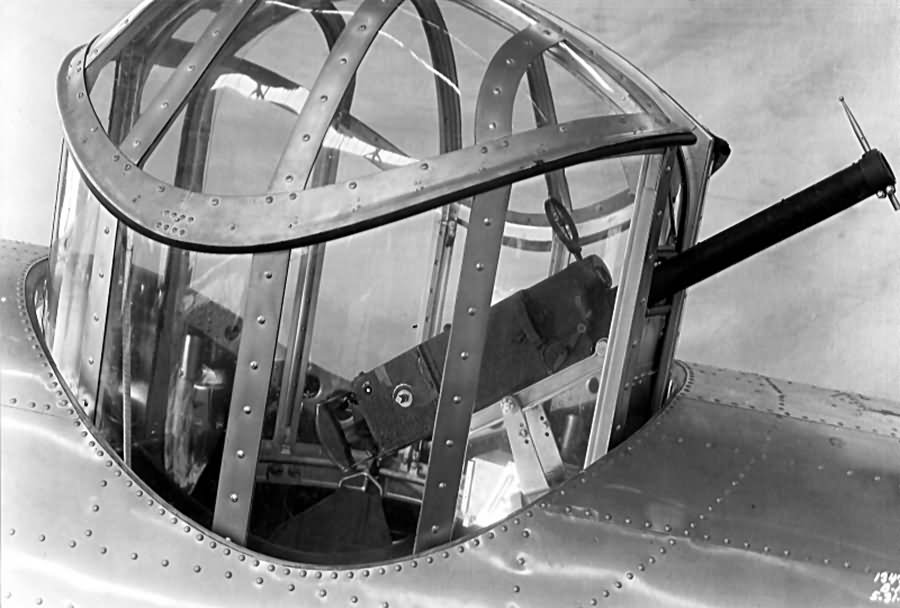The rear upper gun turret on the B-18 Bolo was an innovative and fully retractable design, offering the gunner a comprehensive defensive position with significant flexibility and a full range of motion. Here’s a detailed breakdown of its features and operation:
Construction and Positioning:
Turret Structure:
- The turret was constructed using transparent sheets for visibility, supported by an aluminum alloy framework for strength and lightness.
- It was located between Stations 473 and 493, positioned strategically to cover the upper rear arc of the aircraft.
Retractability:
- The turret could be fully retracted into the fuselage when not in use, reducing drag and protecting it from damage during non-combat flight.
- It was raised and lowered using a system of four chrome molybdenum steel tubes. These tubes were attached to the fuselage and operated via cables connected to a crank drive.
Operational Mechanism:
Turret Rotation:
- When fully extended, the turret could revolve through a full 360 degrees horizontally, allowing the gunner to cover the entire rear hemisphere of the aircraft.
- A safety latch was available to prevent the gun from firing into the aircraft’s tail structure, ensuring the safety of the plane.
- The gun within the turret also had a full 360-degree rotation around its vertical axis and could rotate 134 degrees around its horizontal axis, providing an extensive range of fire angles.
Gunner’s Seat and Safety:
- The gunner was seated on a canvas hammock-style seat attached directly to the turret, providing a secure and somewhat flexible seating arrangement.
- A backrest was connected to the turret ring to offer additional support during operation.
- Rings on the floor were provided for attaching a Type A-3 safety belt, ensuring the gunner’s safety during turbulence or evasive maneuvers.
Stowing the Turret:
- Turret Retraction Process:
- To retract the turret, a pin in the rotating handle was inserted into a stop on the track, locking the turret in place.
- The gun’s grip handles were pushed down and aft until an aluminum sleeve clamped to the gun barrel jacket was secured by pawls at the top of the turret.
- The catch on the left side of the rotating handle was then tripped, allowing the turret to swing and be held by the catch, setting it in position for retraction.
- The turret was retracted by turning the crank, with the gun barrel extending outside the aircraft once fully retracted.
